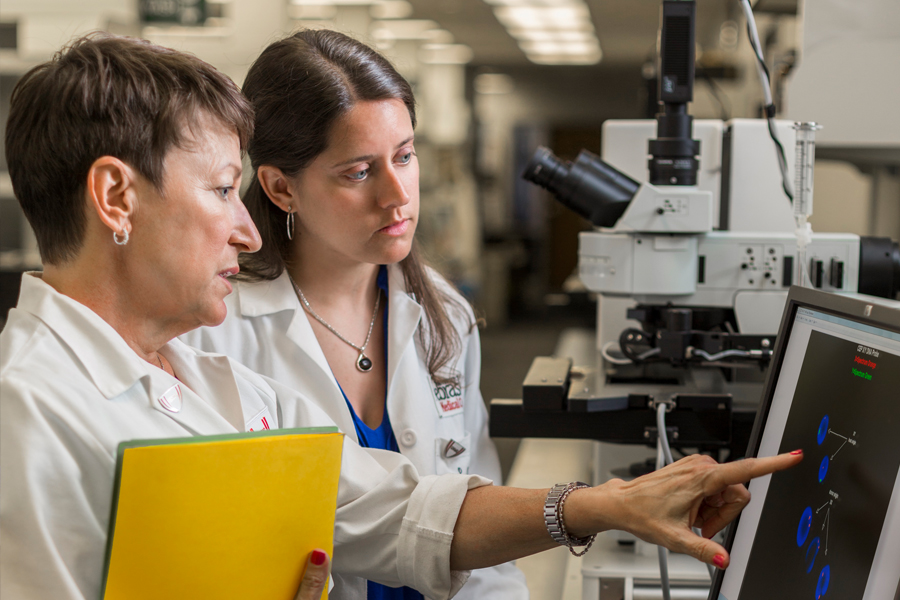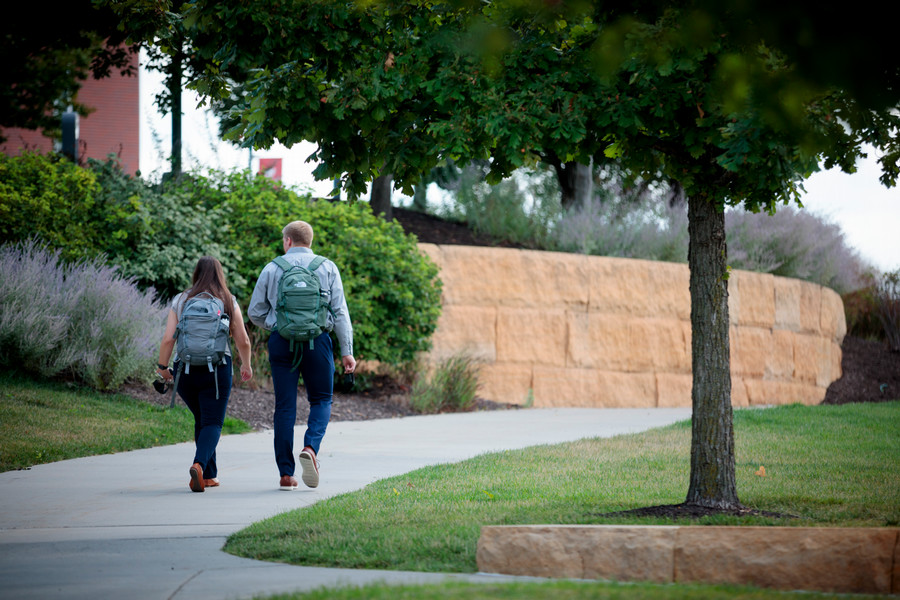Conferences and Courses

Current Topics in Genetics and Cytogenetics Case Conference
Occurring monthly, this conference focuses on presentations related to current topics in genetics where Laboratory directors, Fellows, and laboratory members discuss and extrapolate cytogenetic and molecular cytogenetic findings in selected cases with abnormal results. New diagnostic techniques applied to identify the genetic/cytogenetic abnormalities are illustrated and their importance in resolving critical diagnostic issues is discussed.

Courses
The courses offered below are dependent upon enrollment. For more information, please contact the Office of Graduate Studies.
CAHP 412 — Human Genetics
- 3 Credit Hours
- Typically Offered: Spring, annually
- Undergraduate web based distance education course that emphasizes the basic concepts of human genetics using a molecular approach. The course is designed as a human genetics course that meets the prerequisites for admission to an allied health professional program.
- Prerequisite: General or molecular biology, general or organic chemistry, or permission of instructor.
MMI 921 — Clinical Applications of Molecular Diagnostics
- 2 Credit Hours
- Typically Offered: Spring, annually
- Graduate course that emphasizes the clinical utility of modern molecular diagnostics. This course is designed as a human genetics course that prepares graduate students with the knowledge required to apply molecular techniques to modern medicine, including clinical testing and diagnosis.
- Prerequisite: Admission to a biological sciences graduate program or permission of instructor.
MMI 922 — Molecular Diagnostic Laboratory Techniques
- 2 Credit Hours
- Typically Offered: Spring, annually
- Graduate course that emphasizes the clinical utility of modern diagnostics. This course is designed to provide students with an opportunity to learn about and perform common molecular techniques, including, but not limited to, DNA extraction, electrophoresis, PCR, sequencing, and genomic microarray. In addition, this course will promote the development of analysis and troubleshooting skills for the aforementioned techniques, as well as educate students about quality control and regulations required in the clinical diagnostic laboratory setting.
- Prerequisite: Admission to a biological sciences graduate program or permission of instructor.
PEDS 727 — Human Cytogenetics
- ELECTIVE
- Typically Offered: each four weeks
- The goal of the course is to familiarize students with laboratory techniques in Human Cytogenetics. The course will present techniques and applications of sex chromatin preparations, short-term and longer-term tissue cultures, chromosome preparation and karyotype analysis.
- Activity-Hours/Week: Rounds-0 Didactic conferences-3 Independent learning-0 Research project/lab work-40
- Capacity: 1
- Visiting Student Information: Visiting Students are not to contact faculty or clinical departments prior to acceptance through VSAS. Doing so is considered professional breach and may disqualify the student from being offered a rotation.
PEDS 911 — Human Genetics & Cytogenetics Principles
- 2 Credit Hours
- Cross-listed as MMI 911
- Typically Offered: Fall, annually (Five student enrollment required for the course to be taught)
- Human genetics principles, etiologies of disease, genetic syndromes, counseling issues, population genetics and ethical considerations in genetics.
- Prerequisite: Bachelor’s or Master’s degree in a biological or related field, and permission of instructor.
PEDS 912 — Human Cytogenetics Laboratory
- 2 Credit Hours
- Cross-listed as MMI 912
- Typically Offered: Fall, annually (Five student enrollment required for the course to be taught)
- Development of research tools in human genetics. Includes culture of peripheral blood and human chromosome methodology, analysis and identification.
- Prerequisite: PEDS 911 (or concurrent), a Bachelor’s or Master’s degree in a biological or related field, and permission of instructor.